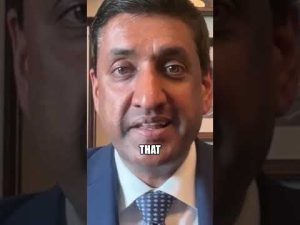Payton McNabb, a former high school volleyball player, found herself at the center of a tragic incident that has sparked a significant conversation about gender and sports. This unfortunate event took place during a volleyball match where Payton was spiked by a biological male competing on the girls’ team. The aftermath was devastating. A traumatic brain injury, brain bleed, partial paralysis, and loss of peripheral vision on her right side are just some of the challenges that Payton now faces. The situation raises an important question: Should biological males be allowed to compete in women’s sports?
This painful experience could have been avoided if the restrictions currently being discussed were in place, aimed at protecting female athletes. Instead, Payton has decided to share her story in a documentary titled *Killshot: How Payton McNabb Turned Tragedy into Triumph.* The documentary, produced by the Independent Women’s Forum, highlights not only Payton’s personal struggles but also the greater issue of fairness and safety in women’s sports.
Looking back, Payton reflected on her senior year, which had started off like any other. Yet, her team, composed of young and inexperienced players, was unprepared for the toughness that comes with facing a male player. Although they had played against this individual for about four years, the physical differences became all too clear during that fateful match. Payton noted the fright that gripped her teammates as they witnessed their captain go down—a moment that should never have happened on a sports court. The anguish of her experience is magnified when considering the emotional toll it had, not just on her, but on her peers who were not ready for such intense competition.
Despite the challenges she faced, Payton is determined to turn her painful journey into a source of empowerment for others. Her advocacy has found support from individuals who share her concerns, including Texas Attorney General Ken Paxton, who is filing a lawsuit against the NCAA for what he describes as misleading practices. Paxton’s legal efforts center around allowing female athletes to compete without the fear of facing biological males who may possess physical advantages over them.
Support has poured in for Payton, providing her with the motivation to continue her battle. She remains hopeful for support from influential figures, such as President Trump and the new Congress, advocating for measures that prioritize women’s sports and private spaces. Despite facing criticism and backlash, she believes that standing up for what is right will ultimately lead to positive change.
The documentary *Killshot* serves as an enlightening portrayal of Payton’s journey and the pressing issues surrounding women in sports. It sheds light on how personal tragedies can ripple out and influence broader societal discussions. Payton’s story is a poignant reminder of the need for dialogue about fairness, safety, and support for female athletes in every arena. Audiences are encouraged to watch the documentary on platforms associated with the Independent Women’s Forum to understand this important conversation more deeply.







